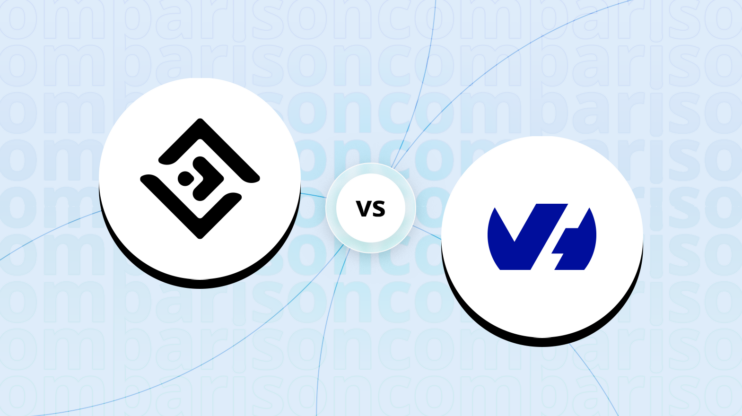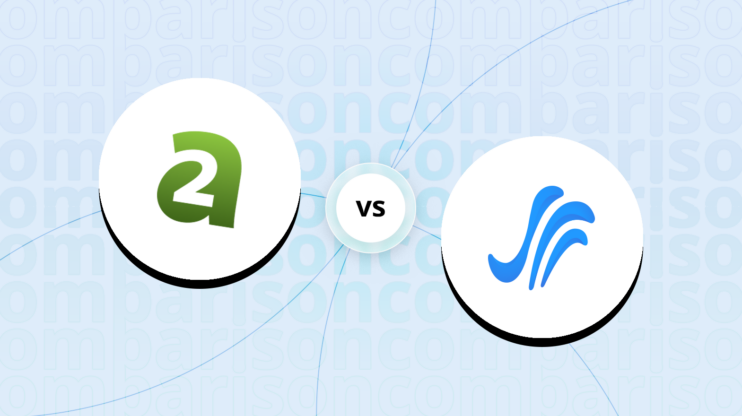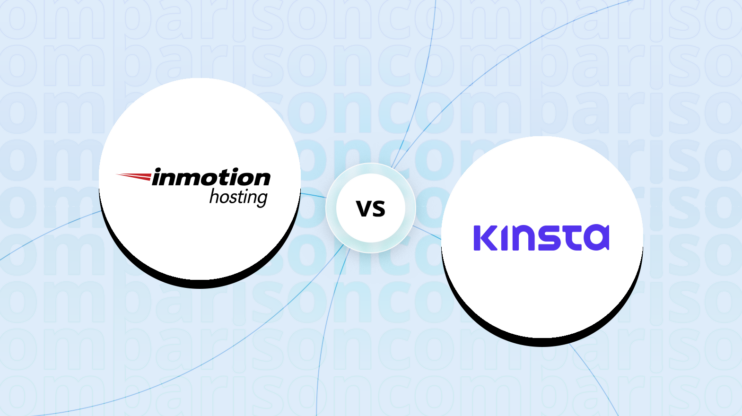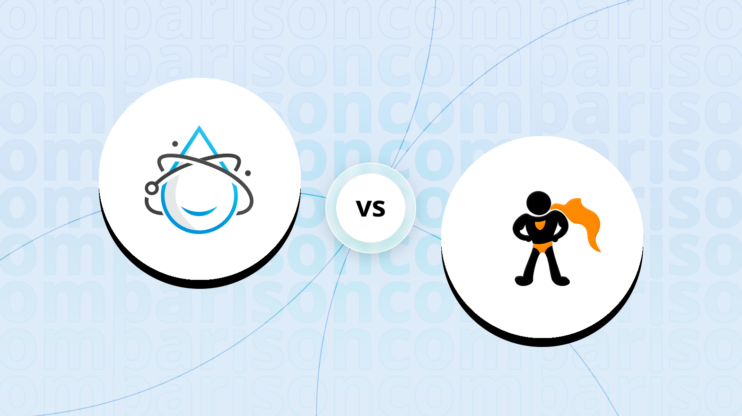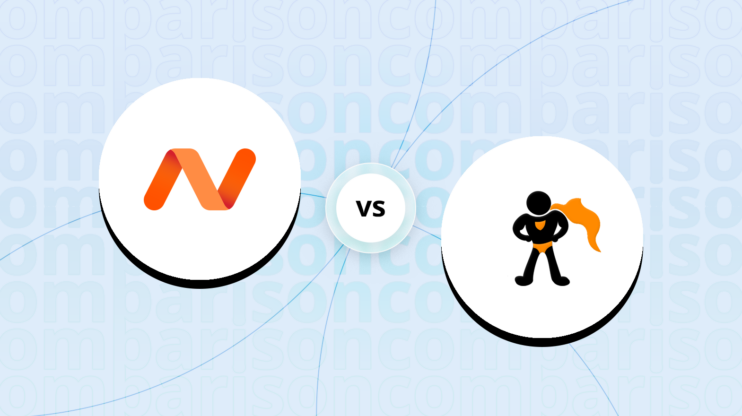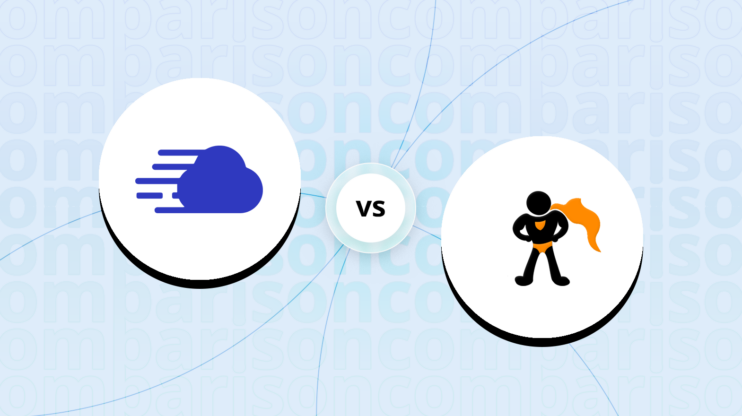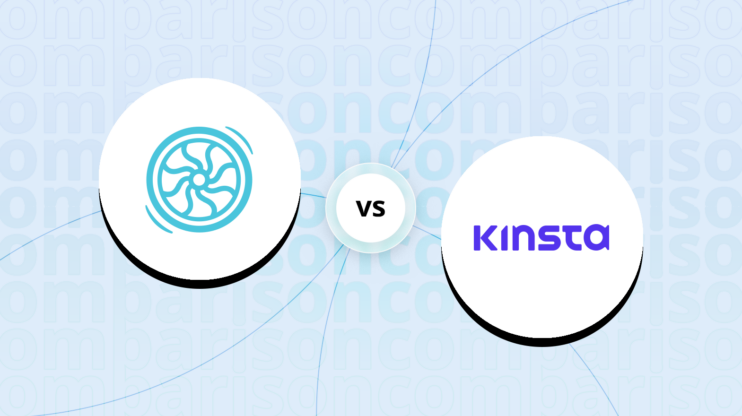Final verdict
Looking over DigitalOcean vs. OVHcloud, it’s clear why both hosts are so popular. They have both hosted millions of
websites that run on WordPress for decades, building up a loyal customer base.
-
OVHcloud (Overall grade: 8.2)
provides a comprehensive solution with a range of hosting types, from shared to dedicated servers. It excels in scenarios prioritizing security, compliance, and extensive email hosting capabilities, making it a solid choice for businesses with more intricate requirements. Its user-friendly control panel, multi-site management, automatic backups, and anti-DDoS protection deliver a seamless experience for less technical users and businesses requiring consistent, managed performance. However, its customer support has received mixed reviews, often noted for slow response times, which can be a drawback in critical situations.
DigitalOcean (Overall grade: 8.3)
stands out for its excellent performance features, such as an impressive uptime guarantee, extensive global data centers, SSD storage, and comprehensive caching mechanisms that ensure quick load times and robust scalability. It’s suitable for developers and businesses needing flexible, high-performance solutions and those running WordPress and multimedia-heavy sites. While it doesn’t offer email hosting or a dedicated website builder, its advanced monitoring and scaling tools, along with competitive pricing, make it a top choice for tech-savvy users. Though the absence of phone support might be a limitation for some, its straightforward interface and reliable customer assistance through tickets and community forums uphold its user-friendly reputation.
 Overall grade:8.3 |
 Overall grade:8.2 |
|
|---|---|---|
| Uptime and Availability | 9.2 | 8.2 |
| Hosting Performance | 8.8 | 7.5 |
| Hosting Security | 9.1 | 9.3 |
| Price | 8.7 | 8.7 |
| Hosting Features | 6.9 | 6.6 |
| Ease Of Setup | 8.2 | 8.7 |
| User Management | 8.0 | 8.9 |
| Customer Support | 7.8 | 7.6 |
| User feedback | 4.6/5 | 3.3/5 |
Hosting types offered
Both platforms provide a variety of hosting types, each designed to meet the different needs of users.
 |
 |
|
|---|---|---|
| Shared hosting | ||
| Cloud hosting | ||
| WordPress hosting | ||
| Ecommerce hosting | ||
| VPS hosting | ||
| Dedicated hosting |
Although both offer a variety of hosting plans tailored to different needs, in certain cases, one platform may prove to be more suitable.
Detailed comparison
Uptime and availability
Evaluates the average uptime statistics, uptime guarantee and overall availability of the hosting
provider
Score Components:
- Uptime percentage (30%): evaluates the uptime statistics in given period of time
- Uptime guarantee (20%): Assesses if the platform offers an uptime guarantee and
whether the actual uptime matches the promised guarantee. - General performance (25%): Evaluates how fast is the average response time and overall
it’s stability. - Responsiveness (10%): Adaptability to different devices and screen sizes.
- Availability (25%): Reflects the total downtime and number of outages.
 9.2
9.2
 8.2
8.2
🏆 Winner
DigitalOcean: DigitalOcean stands out for its superior uptime and robust monitoring features.
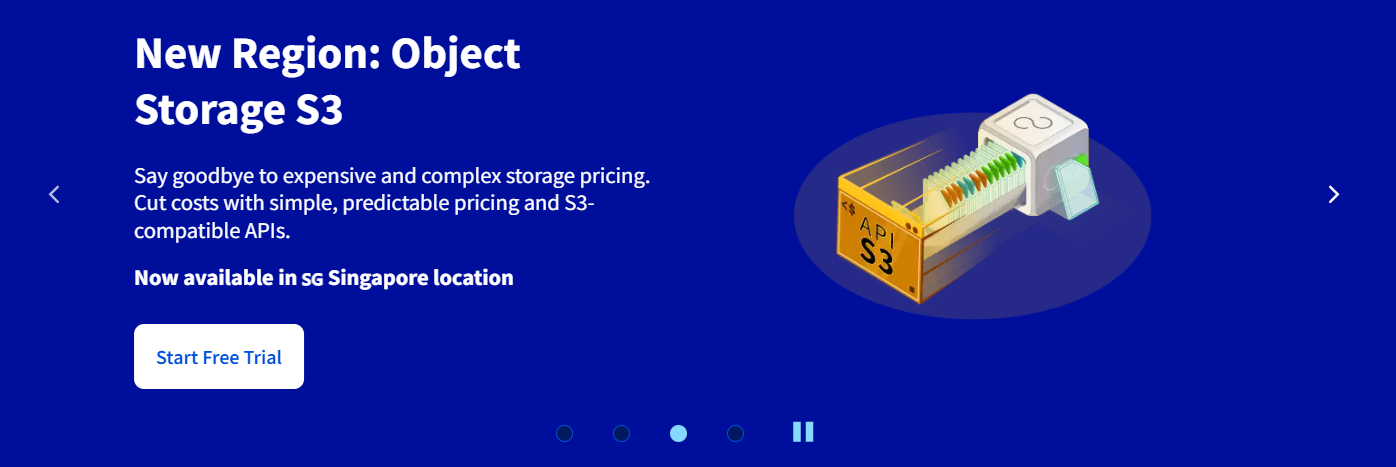
DigitalOcean provides real-time alerts for endpoint issues and monitors global latency down to the millisecond. It features 24/7 monitoring of any cloud endpoint and customizable alerts. The platform offers a 30-day global average uptime and automated monitoring for quick response to issues.
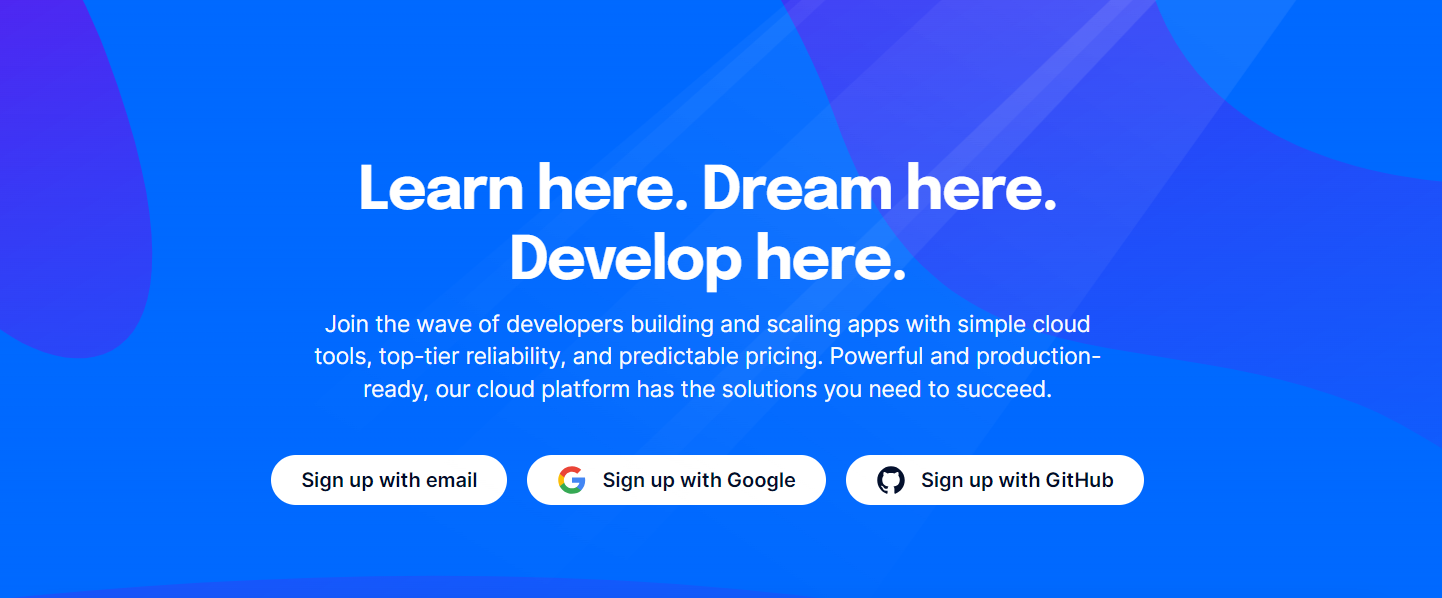
OVHcloud has shown improvement in uptime, reaching 99.962% in recent months. The hosting provider offers global infrastructure and automatic backups for data integrity. Anti-DDoS protection is included in all plans, ensuring service availability even during attacks.
Hosting performance
Score Components:
- Hosting speed (30%): This includes SSD quality, Load times, PageSpeed score ranges,
additional information on website speed, built-in plugins for performance enhancement, available caching
methods, and CPU/RAM options - CDN (20%): Considers whether CDN is available or not, whether it’s free or paid, and
the quality of the CDN service - Available data centers (30%): Evaluates the number of data centers and their locations
globally. - Scalibility (20%): Looks at whether elastic scaling is available, the process required
to scale (manual upgrade vs. automatic scaling), the presence of dedicated servers, and the costs
associated with scaling.
 8.8
8.8
 7.5
7.5
🏆 Winner DigitalOcean: DigitalOcean provides a highly reliable and flexible hosting solution suitable for a variety of web applications.
Both DigitalOcean and OVHcloud offer strong performance metrics, but DigitalOcean has the edge due to its superior uptime guarantee and comprehensive performance features. DigitalOcean boasts a 99.99% uptime SLA and 14 globally distributed data centers, ensuring consistent availability and quick load times. DigitalOcean’s CDN offers low-latency content delivery across the globe, while SSD storage and extensive caching mechanisms further enhance performance. OVHcloud provides solid specs, such as up to 8 vCores and 16 GB RAM, and includes a basic CDN. However, OVHcloud’s performance features are less extensive and its global data center reach is not explicitly detailed.
Website Speed
DigitalOcean ensures fast website performance with its focus on SSD storage, CDN, and robust caching mechanisms. Droplets allow high-speed, flexible deployments that can be optimized for specific applications. This combination results in reduced server load and faster page load times. OVHcloud includes SSD storage and offers basic CDN services but lacks the extensive caching options available with DigitalOcean. Consequently, websites on DigitalOcean tend to deliver better speeds and more consistent performance.
Scalability
DigitalOcean offers horizontal scaling and load balancing, making it easy to handle varying levels of traffic. Its fully managed PaaS, the App Platform, allows for automatic scaling without requiring plan upgrades. This makes it cost-effective for businesses that experience traffic spikes. On the other hand, OVHcloud requires manual adjustment through their Boost Option, which costs $0.65/day, and the details on automatic scaling or dedicated servers are not provided. DigitalOcean’s flexible and automated scaling solutions make it a more scalable option.
Hosting security
and regulatory requirements
Score Components:
- Technical security measures (40%): This includes encryption, firewalls, DDoS
protection, secure configurations, server monitoring, access control and availability of security addons
(e.g Sitelock security). - Operational security measures (30%): Encompasses data privacy, backups and data
redundancy. - Compliance and certifications (20%): Adherence to legal and regulatory requirements
(e.g., GDPR, HIPAA) and possession of certifications (e.g., ISO 27001, SOC 2). - Business and reliability (10%): Factors in the provider’s reputation, uptime
guarantees, and customer support.
 9.1
9.1
 9.3
9.3
🏆 Winner OVHcloud: OVHcloud offers a comprehensive set of security measures and compliance features that makes it stand out.
Both DigitalOcean and OVHcloud have notable differences in their approaches to technical and operational
security, as well as in their compliance with regulations.
Technical security measures:
Both DigitalOcean and OVHcloud provide robust technical security measures. DigitalOcean offers SSL certificates and supports various PHP versions, enhancing compatibility and security. OVHcloud, on the other hand, provides Let’s Encrypt SSL certificates with every plan and offers additional paid SSL options. Both platforms include DDoS protection and firewalls to protect against network attacks. DigitalOcean’s SSH access and automated backups add more layers of security. OVHcloud also offers detailed statistics and logs, which can be useful for monitoring and security audits.
Operational security measures:
In terms of operational security measures, both hosting providers offer significant protections. DigitalOcean provides robust SSH access, two-factor authentication (2FA), and web application firewalls (WAF). They also offer features like virtual private cloud (VPC) and managed databases with TLS/SSL connections. OVHcloud’s operational security includes automatic data backups with restore options and anti-DDoS protection by default. Furthermore, OVHcloud provides multi-site management capabilities and task automation features from their Control Panel, which can streamline security operations.
Compliance and certifications:
Both DigitalOcean and OVHcloud excel in compliance and certifications. DigitalOcean complies with GDPR and PCI-DSS requirements and holds multiple certifications, including SOC 2 Type II, SOC 3 Type II, ISO/IEC 27001:2013, and others. OVHcloud also meets GDPR and PCI DSS requirements and has a broader range of certifications, such as ISO 27001/27017/27018, SOC 1/2/3, and HIPAA compliance for U.S. datacenters. OVHcloud’s extensive list of certifications makes it highly suitable for clients requiring specific regulatory compliance.
 |
 |
|
|---|---|---|
SSL certificate |
Included |
Included + Paid options |
Additional security features |
SSH, 2FA, WAF |
Backup, Logs, API |
PHP versions |
Various |
Not specified |
GDPR compliance |
Yes |
Yes |
HIPAA compliance |
No |
Yes |
PCI compliance |
Yes |
Yes |
Hosting features
Score Components:
- Domains (20%): Assesses the availability of a free domain, domain purchase options, and
pricing - Email (15%): Considers if the provider offers full email hosting, or is reselling
third-party service, and if the email is only transactional or not - Website builder (15%): Checks if website builder is available, and it’s user
friendliness and overall the level of customization allowed. - Staging environment (20%): Determines if a staging environment is available, allowing
for testing changes before going live. - FTP & SFTP accounts (10%): Evaluates if and how easily users can access FTP and
SFTP accounts - Git and SSH access (20%): Assess whether Git is integrated into the hosting service and
if SSH access is provided
 6.9
6.9
 6.6
6.6
🏆 Winner DigitalOcean: DigitalOcean offers a broad range of features tailored to experienced developers and businesses.
Both DigitalOcean and OVHcloud provide comprehensive hosting solutions, but their offerings cater to different user profiles. DigitalOcean stands out for its extensive security features, including DDoS protection, firewalls, SSL certificates, and SSH access. It supports various hosting types such as dedicated, shared, and VPS hosting, making it a flexible choice. DigitalOcean also includes managed services like Kubernetes and databases. A unique selling point is its high-performance infrastructure with 14 globally distributed data centers and a 99.99% uptime SLA. Although less user-friendly for beginners due to its developer-centric interface, DigitalOcean shines with features like VPC, load balancers, and cloud firewalls.
OVHcloud provides managed hosting with a strong focus on user friendliness, offering features like unlimited monthly traffic, multi-site management, and a one-click CMS installation. For less technical users, OVHcloud’s interface makes it easy to configure products and services. Their managed hosting ensures that performance and security patches are up to date without user intervention. Another advantage is the availability of unlimited FTP and SSH access on higher-tier plans, catering well to users needing server access. Backups and restores are easily managed, and their ecosystem supports a range of multilingual guides and community support. OVHcloud offers competitive pricing, especially for beginners with their Starter Web Hosting plan.
 |
 |
|
|---|---|---|
Free domain |
No |
No |
Free SSL |
Yes |
Yes |
Email hosting |
No |
Yes |
Website builder |
No |
Yes |
Staging environment |
Yes |
Yes |
FTP & SFTP account |
Yes |
Yes, from Personal plan |
Git and SSH access |
Yes |
Yes |
Free backup |
Yes |
Yes |
Money back guarantee |
No |
No |
a location.
As a result in rare cases the features mentioned here can differ from the ones you see on their websites.
Both providers support a range of users from beginners to experts with user-friendly website builders and WordPress staging areas. However, in terms of developer tools, both DigitalOcean and OVHcloud offer robust options including SSH access, support for multiple programming languages, and Git for version control, thus appealing to developers looking for advanced capabilities.
Email services:
OVHcloud provides extensive email hosting options, including up to 1000 email addresses on higher plans, making it suitable for businesses that need robust email services. DigitalOcean, by contrast, does not offer email hosting services directly but focuses on performance and security features. OVHcloud also supports transactional email capabilities and integrates with third-party services like Google Workspace, providing more versatility for email campaigns and communication needs.
Price
Score Components:
- Plan value (40%): What each pricing tier offers.
- Transparency and clarity (30%): Clearness of pricing structures.
- Flexibility of plans (20%): Range of options to suit different budgets.
- Hidden costs (10%): Additional expenses not included in the plan.
 8.7
8.7
 8.7
8.7
🏆 Winner DigitalOcean: Offers a wide range of flexible and cost-effective hosting plans.
Evaluating the pricing of plans among various hosting providers can be complex due to their differing pricing and renewal strategies. Additionally, certain plans require annual commitments, which adds to the difficulty of making comparisons. The prices listed are based on monthly commitments; plans requiring annual commitments are indicated. Additionally, although some providers offer identical plans for WordPress and shared hosting, we have created separate tables for each to enhance clarity.
DigitalOcean offers an entry-level Basic Droplet starting at $4/month, making it an excellent option for smaller applications and websites needing reliable cloud hosting. They also provide an array of VPS hosting options, starting at $4/month for shared CPU droplets and going up to $131/month for storage-optimized droplets, catering to diverse needs. OVHcloud, on the other hand, has a more straightforward range of shared hosting plans starting from $1.04/month for their Starter Web Hosting, escalating to $13.19/month for their Performance Web Hosting. While both have plans catering to various audience sizes and demands, DigitalOcean provides a more extensive range of scalable options and developer-friendly features, making it attractive for those looking for flexibility and performance.
 |
 |
|---|---|
|
WordPress Hosting (Basic Droplet: $4/month)
1-Click WordPress installation, managed via Cloudways, free SSL, automatic backups, DDoS protection. Value for price:9.0
|
Starer Web Hosting ($1.04/month)
WordPress installed, 1 website, 1GB disk space, 2 email addresses, included free domain name. Value for price:7.5
|
 |
 |
|---|---|
|
Website Hosting (Basic Droplet: $4/month)
Simple and reliable cloud hosting, 1-click apps, 99.99% uptime, 14 global data centers. Value for price:8.5
|
Starter Web Hosting ($1.04/month)
1 website, 1GB disk space, 2 email addresses, free domain name. Value for price:7.5
|
|
(App Platform Basic plan: $5/month)
Transparent pricing, SLA guarantee. Value for price:8.5
|
Personal Web Hosting ($4.39/month)
1 website, 100GB disk space, 10 email addresses, included free domain name. Value for price:8.0
|
|
Professional Web Hosting ($7.69/month)
1 website, 250GB disk space, 100 email addresses, included free domain name. Value for price:8.5
|
|
|
Performance Web Hosting ($13.19/month)
1 website, 500GB disk space, up to 1000 email addresses, high-performance resources. Value for price:9.0
|
 |
 |
|---|---|
|
VPS Hosting (Shared CPU Droplets: $4-$7/month)
Starting from shared processing power to enhanced memory performance, NVMe SSDs. Value for price:8.5
|
Starter Web Hosting ($1.04/month)
1GB disk space, 2 email addresses, WordPress installed, free domain name. Value for price:7.5
|
|
(Dedicated CPU Droplets: $42/month)
For 4GB memory, 25GB SSD, and 4TB transfer. Value for price:8.0
|
Personal Web Hosting ($4.39/month)
100GB disk space, 10 email addresses, 1-click CMS, free domain name. Value for price:8.0
|
|
(Memory-Optimized Droplets: $84/month)
For 16GB memory, 2vCPUs, 50GB SSD, and 4TB transfer. Value for price:7.5
|
Professional Web Hosting ($7.69/month)
250GB disk space, 100 email addresses, 1-click CMS. Value for price:8.5
|
|
(Storage-Optimized Droplets: $131/month)
For 16GB memory, 300GB SSD, and 4TB transfer. Value for price:7.0
|
Performance Web Hosting ($13.19/month)
500GB disk space, up to 1000 email addresses, high-performance resources, free domain name. Value for price:9.0
|
Enterprise plans
For enterprise-level needs, DigitalOcean’s higher-tier options such as Memory-Optimized Droplets ($84/month) and Storage-Optimized Droplets ($131/month) come equipped with substantial storage and memory capabilities suited for highly demanding applications. Meanwhile, OVHcloud’s Performance Web Hosting ($13.19/month) provides significant disk space and email address capacity, suitable for more static web environments. DigitalOcean’s scalability and advanced features make it a preferred choice for enterprises needing robust environments and flexible configurations.
Ease of setup
platform.
Score Components:
- Site migration (25%): Assesses whether the provider offers tools for site migration,
either automated or manual, and whether these services are free or require a fee. - Admin panel usability (35%): Evaluates the type of admin panel provided, such as the
standard cPanel or a custom solution, focusing on its accessibility and user-friendliness for both
technical and non-technical users. - Setup features (20%): Examines the availability and ease of use of various setup
features, including FTP accounts, file managers, email account setup, PHPMyAdmin, and easy CDN
configuration. - Help center quality (20%): Measures the quality and accessibility of the provider’s
help center resources, including articles and tutorials.
 8.2
8.2
 8.7
8.7
🏆 Winner OVHcloud: A comprehensive solution with a simplified control panel and managed hosting options.
DigitalOcean offers an array of admin panel options, such as the Droplets interface for direct server management and the Cloudways platform for a managed experience. These solutions cater to both technical users who prefer customizable configurations and non-technical users who seek ease of use through managed hosting. The DigitalOcean Droplets interface provides flexibility and control for experienced users, while Cloudways simplifies website management with an intuitive dashboard.
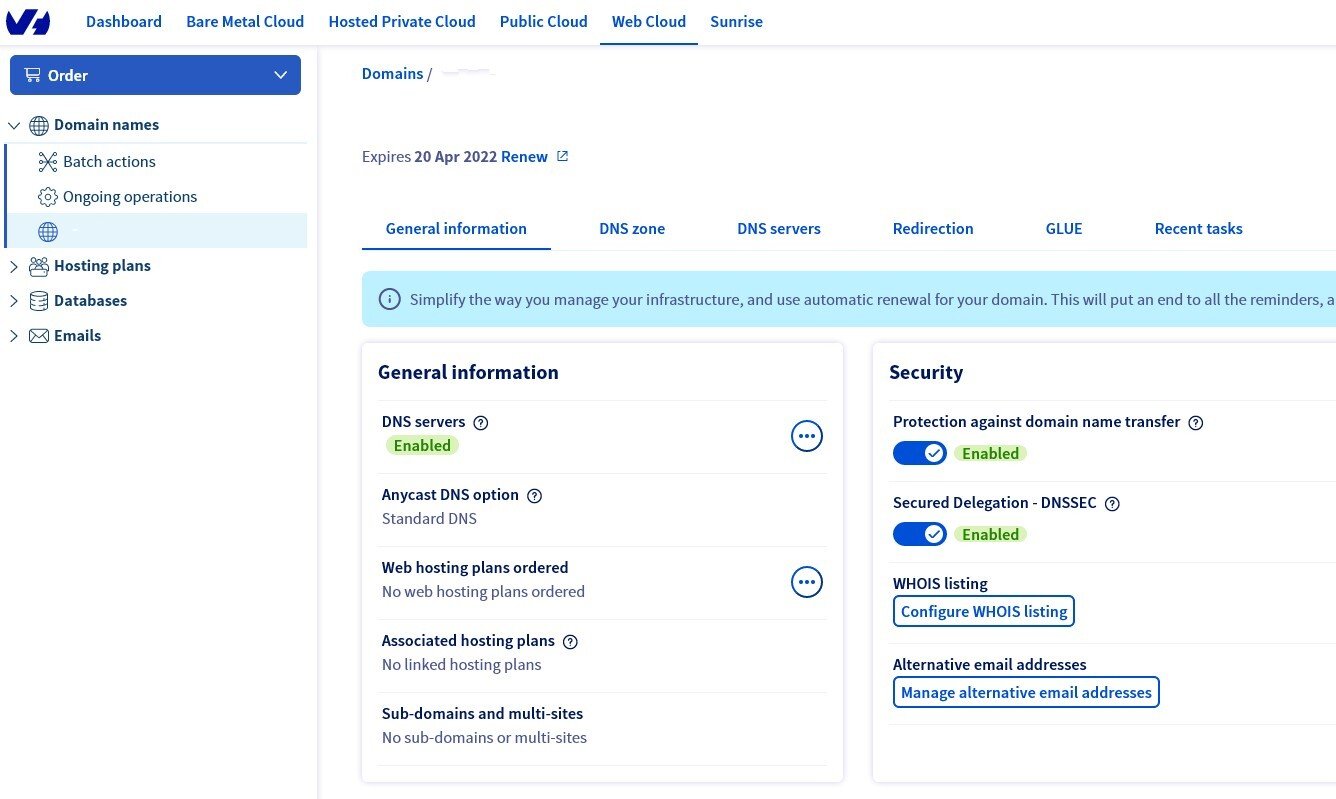
OVHcloud provides a centralized control panel called the OVHcloud Control Panel, designed to be user-friendly for both novices and seasoned users. This panel simplifies the configuration and management of hosting services, offering a range of tools in a single interface. With features like 1-Click CMS Installation, it allows users to set up popular content management systems quickly, making it a straightforward option for those looking for a hassle-free setup experience.
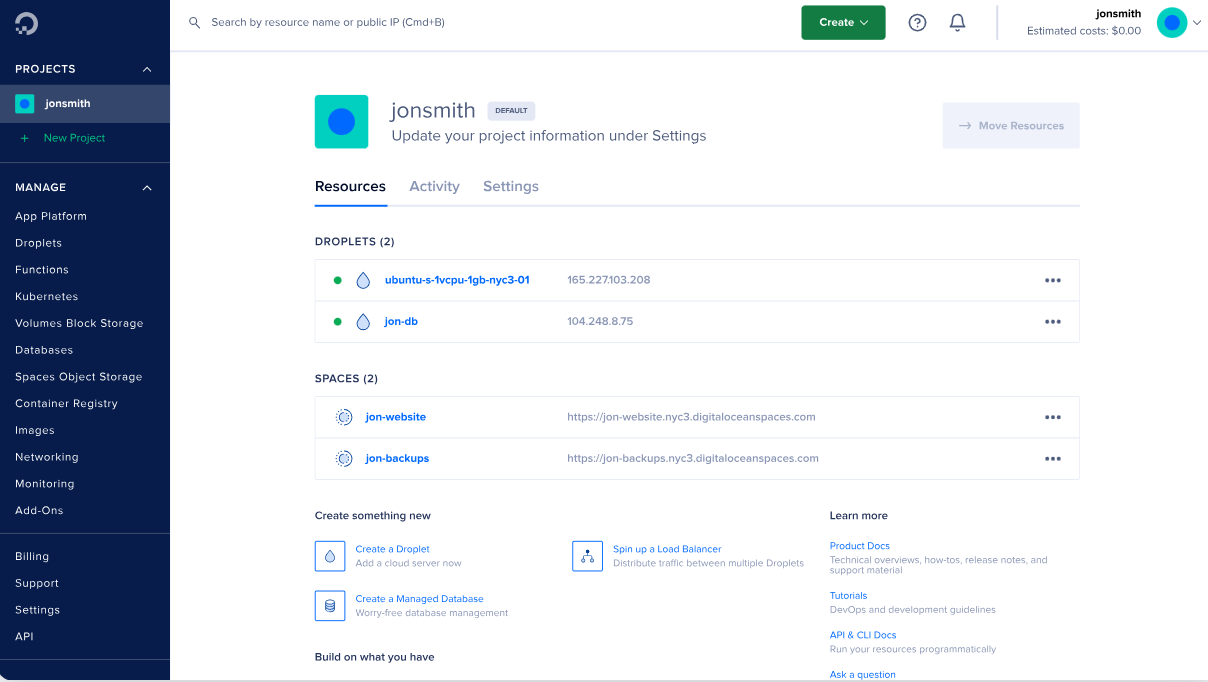
DigitalOcean does not offer dedicated migration tools but provides extensive documentation and community support to assist users in manually migrating their sites. Cloudways, a service by DigitalOcean, provides managed migration services, which can simplify the process but may involve additional costs. On the other hand, OVHcloud offers no mention of specific migration tools, implying that users may need to perform migrations manually with the aid of their support guides and community resources.
DigitalOcean offers a comprehensive range of help center resources including documentation, tutorials, and community support. Their support infrastructure is easily accessible, providing timely assistance through a ticketing system and the Cloudways 24/7 live chat support. OVHcloud similarly provides detailed guides, multilingual support, and a community space for users. Both hosting providers have extensive resources, ensuring that users can find solutions to their issues effectively.
User management
accessibility.
Score Components:
- Role customization (40%): Flexibility in creating and defining user roles and
permissions. - Ease of management (30%): User interface and tools for managing users.
- Access control (20%): Effectiveness of access control measures for different user
levels. - Scalability (10%): Ability to manage a growing number of users efficiently.
 8.0
8.0
 8.9
8.9
🏆 Winner: OVHcloud: Exceptional user management versatility with advanced roles and tools.
When comparing DigitalOcean and OVHcloud, DigitalOcean offers straightforward user management through defined roles like Owner, Biller, and Member, each with specific access to resources and billing information. There are no limits on team members or roles, providing flexibility and ease of management for small to midsized teams. OVHcloud, on the other hand, provides a more granular approach through its integration with OpenStack. It allows the creation of multiple users with distinct roles such as Administrator, Network Operator, and Infrastructure Supervisor, each with defined access levels. Users can combine several roles per access point, catering to complex infrastructure requirements.
DigitalOcean’s user management interface simplifies inviting new team members via email and monitoring their roles and statuses. Team owners can manage user roles and view sign-in methods, promoting transparent oversight. OVHcloud also prioritizes ease of use but focuses on more advanced configuration. With tools to generate access files and define specific actions per role, admins can fine-tune permissions directly through the OVHcloud Control Panel, aligning with enterprise-level management needs.
In terms of access control measures, DigitalOcean ensures all team members can view membership tables, enhancing transparency and accountability. Team owners have complete control over roles and access levels, maintaining streamlined oversight, even as the team scales. OVHcloud’s approach is tailored to managing vast infrastructures, with no limits on user numbers and roles. This flexibility is crucial for businesses requiring detailed access controls and the ability to adjust roles dynamically, retaining high security and operational efficiency even with extensive user bases.
DigitalOcean User Roles Table
| Role | Description | Access Highlights |
|---|---|---|
| Owner | Full access to resources, billing, and team settings. | Can invite/manage team members and view billing. |
| Biller | Access to billing information only. | No access to resources or team settings. |
| Member | Access to shared resources. | Cannot view billing or team settings. |
OVHcloud User Roles Table
| Role | Description | Access Highlights |
|---|---|---|
| Administrator | Comprehensive management of infrastructure resources. | Full control over infrastructure. |
| Network Operator | Manages network configurations and monitoring. | Can create and manage network-related resources. |
| Infrastructure Supervisor | Oversees overall infrastructure performance and health. | Can view and monitor infrastructure activities. |
| ObjectStore Operator | Manages object storage solutions and policies. | Can create and manage object storage. |
| Image Operator | Handles private image creation and maintenance. | Can create, store, and manage virtual server images. |
| Compute Operator | Manages compute resources, including server instances. | Can create and manage server compute resources. |
In conclusion, both platforms offer strong user management features, but OVHcloud stands out for its intricate and highly customizable user role management that suits complex infrastructure needs.
Customer support
hosting provider.
Score Components:
- Support communication channels (30%): Measures the variety of customer support types
provided (live chat, chatbot, email, phone, etc.) - Availability (20%): Assesses the availability hours for each channel, including 24/7
support options. - Technical support quality (30%): Assesses whether the provider offers comprehensive
technical support, including hardware upgrades (e.g., HDD to SSD), software installations, and web
server configuration changes. - Enterprise support (20%): Checks if there are dedicated or priority support services
for enterprise-level customers.
 7.8
7.8
 7.6
7.6
🏆 Winner
DigitalOcean: Offers a variety of support options including 24/7 online ticketing and community resources.
 |
 |
|
|---|---|---|
Phone support |
||
Live chat support |
(premium) |
|
Chatbot |
||
Email/ticket support |
||
Enterprise support (dedicated agent, priority support) |
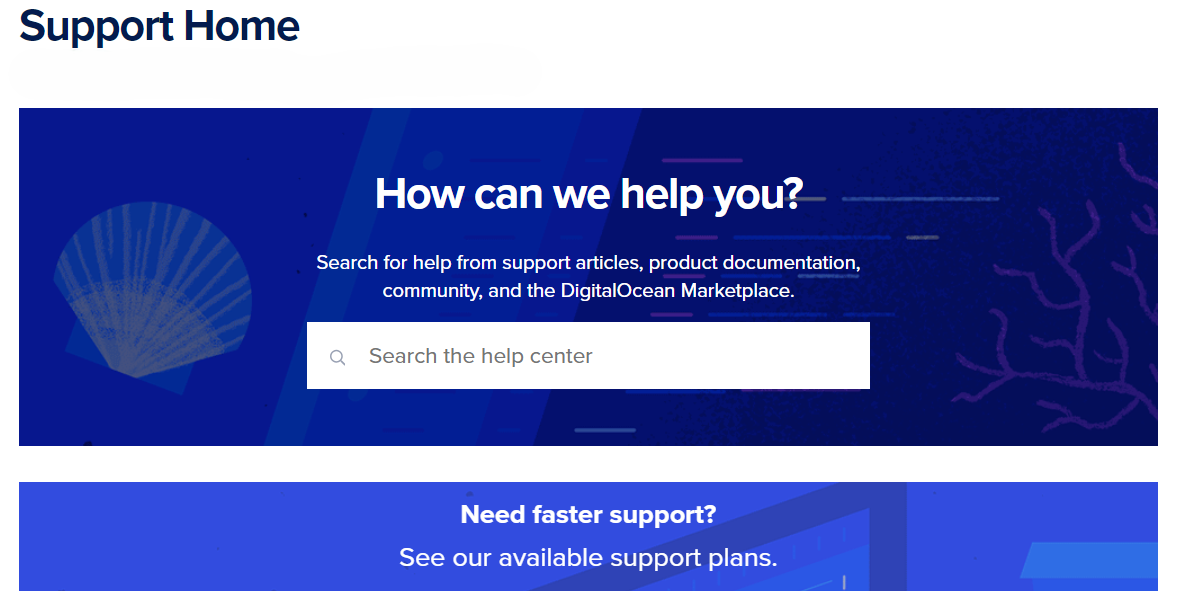
DigitalOcean provides a range of customer support options that ensure accessibility and convenience. They offer 24/7 online ticketing with an SLA for response times, as well as a comprehensive documentation center and a variety of tutorials. Their community forum is active and offers a collaborative space for troubleshooting. Live chat support is exclusive to premium plans, but their easy registration process and user-friendly control panel enhance overall user experience.
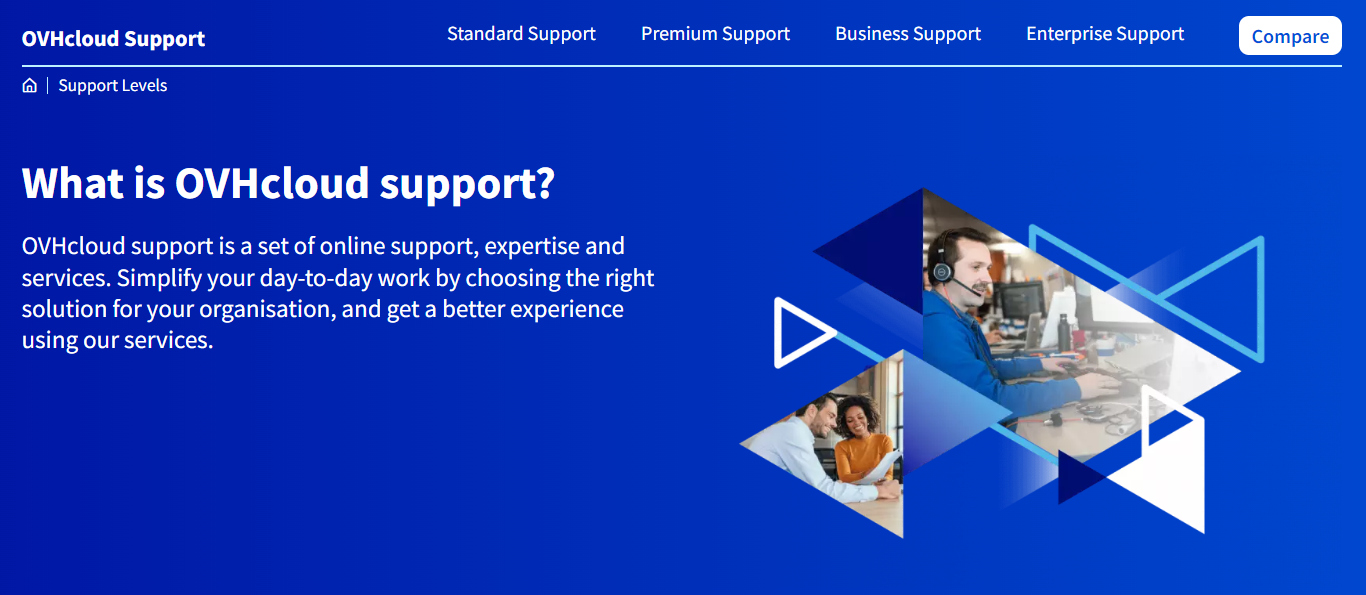
OVHcloud presents multiple tiers of customer support to cater to different needs, ranging from standard support during business hours to extensive 24/7 enterprise support for critical environments. They provide email and ticket support across all levels, with telephone support available on weekdays. Their knowledgebase and community forum offer additional self-help options, though some forum questions may remain unanswered for extended periods. Premium levels of support are available at a significant cost.
User feedback
DigitalOcean consistently garners praise for its simplicity, user-friendly interface, and transparent pricing, making it ideal for both beginners and experienced developers. Users appreciate the straightforward setup, reliable performance, and excellent customer support, highlighting features like one-click deployment and robust documentation. However, there are some minor criticisms, including a limited variety of server configurations compared to larger providers and occasional slow customer support response times. Despite these drawbacks, DigitalOcean is highly regarded for its cost-effectiveness, ease of use, and overall reliability, particularly for small to medium-sized businesses and startups.
User feedback for this hosting provider reveals a stark contrast in experiences. On one hand, users appreciate the competitive pricing, diverse range of services, multiple datacenter locations, and solid server performance when issues do not arise, reflecting a favorable cost-benefit ratio. On the other hand, many users criticize the provider’s customer service, highlighting slow response times, inadequate technical support, and unresolved billing discrepancies, with some experiencing significant delays and lack of assistance in critical situations. Overall, while the hosting services can be robust and reliable, the customer support and service delivery times need considerable improvement.
FAQ
Which platform is better suited for hosting WordPress websites?
DigitalOcean is well-suited for hosting WordPress websites with its specialized WordPress hosting that includes managed services and scalable solutions. On the other hand, OVHcloud does not specifically offer WordPress hosting, making DigitalOcean the preferable option for hosting WordPress sites.
Are both platforms suitable for beginners?
OVHcloud is more suitable for beginners with its user-friendly control panel, multi-site management, and easy-to-use features like automatic backups and anti-DDoS protection. While DigitalOcean has a straightforward interface, it is more geared towards tech-savvy users and developers with a focus on performance and customizability.
What are the major differences in pricing and value between DigitalOcean and OVH?
DigitalOcean offers a range of scalable and customizable plans starting at $4/month for Basic Droplets, catering well to developers and businesses needing flexible solutions. OVHcloud provides straightforward shared hosting plans starting at $1.04/month, focusing on value for beginners and businesses needing comprehensive features like email hosting and basic CDN.
Which hosting service offers better security features?
Both DigitalOcean and OVHcloud provide robust security features including SSL certificates and DDoS protection. DigitalOcean offers additional security layers such as SSH access and automated backups, whereas OVHcloud includes Let’s Encrypt SSL certificates and detailed logs for monitoring. However, DigitalOcean has a slight edge with its extensive security tools.
How do the providers handle email hosting and what features are included?
OVHcloud offers extensive email hosting capabilities including up to 1000 email addresses on higher-tier plans, making it ideal for businesses needing robust email solutions. DigitalOcean does not provide email hosting directly but focuses on performance and security, meaning users would need third-party services for email hosting.
The making of this blog
We followed a clear, step-by-step process to write and research this article.









